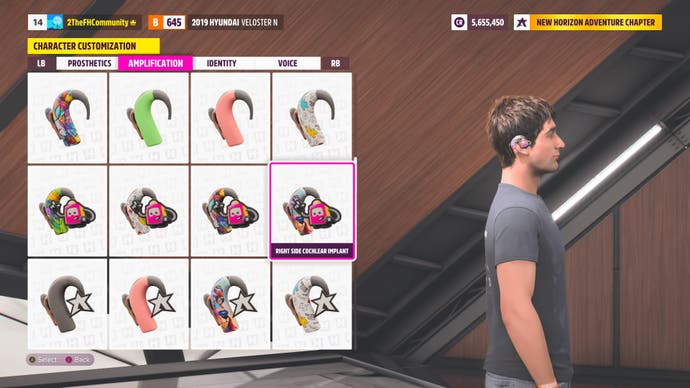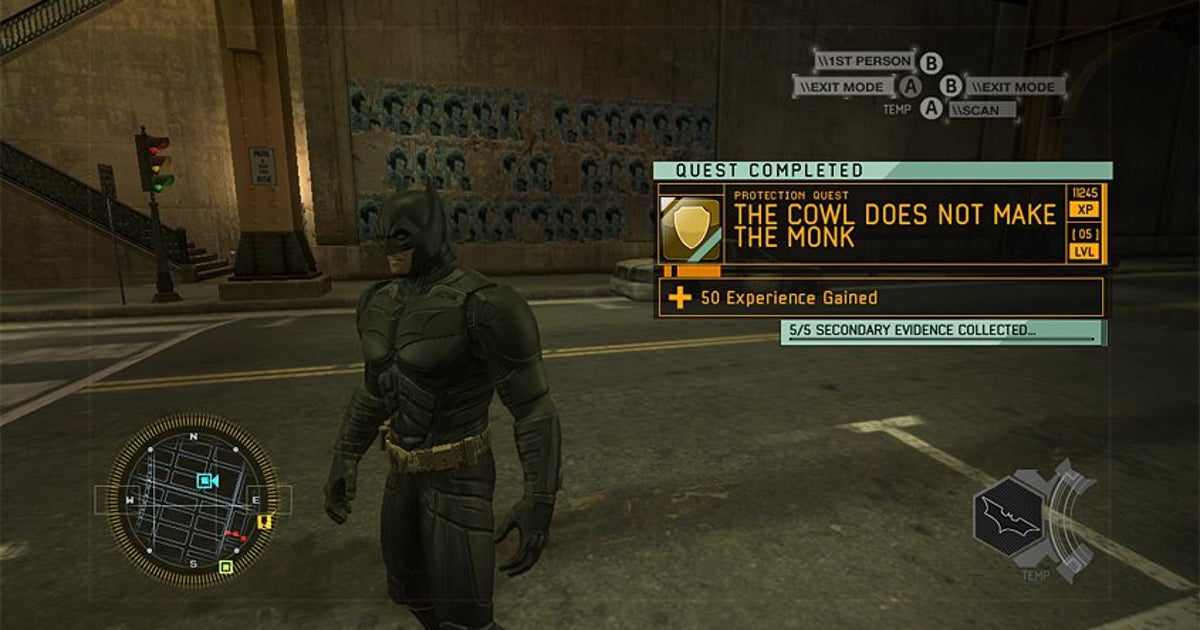[ad_1]
As news broke that Microsoft would block an unspecified array of third-party devices from Xbox consoles in late 2023, it quickly became clear the decision would disproportionately affect disabled gamers. Despite the benefit of time, the actual scope of the change remains uncertain, even as third-party devices continue to be unilaterally blocked.
“It’s certainly not an unprecedented move,” says Laura Kate Dale, an accessibility critic and consultant, “it’s basically already the case on Nintendo and PlayStation consoles, but it will undoubtedly reduce the number of options available to players.”
This was underlined when news broke that Sony had quietly blocked the Cronus Zen from connecting to PlayStation 5 consoles in a new update this week. It’s a device many disabled players use to connect more accessible input devices to their consoles, many of whom are left in limbo on both Sony and Microsoft consoles. It means that setups dependent on unlicensed devices are now rendered useless and investment wasted by unfocussed and unfair bans on anything Microsoft and Sony deem unauthorised.
“There are fifteen of them just within arm’s reach of where I’m sitting now,” Kelly Marine, accessibility mistress for Haunted Bees Productions, tells me when asked how many third-party devices she uses.
“I couldn’t even begin to tell you the total cost,” she continues. “All but two of the things I’ve mentioned are not licensed for use with the newest Xbox, so I’ve been using adapter dongles, all from the same line, all affected by the new lockout policy.”
 Access Controller – Features Trailer | PS5
Access Controller – Features Trailer | PS5
Microsoft has been quick to point out that devices connecting to the Xbox Adaptive Controller are unaffected. Though, this places the onus on a device that is only helpful in specific use-cases. Without a robust selection of third-party solutions to fill the gaps and offer more affordable alternatives, its effect – and that of Sony’s Access controller – is specific yet somehow still ambiguous, and for many players minimal.
“Sometimes an unusually shaped controller might be just the right shape for someone to grip one handed,” Dale says. “Maybe the way a disabled gamer needs to grip their controller in use leads to it getting damaged, and cheap controllers are better financially in the long run.”
A more diverse landscape offers affordable and, often, simpler options that can cover the cracks that form due to the consolidating of accessibility around specific solutions – as both Microsoft and Sony continue to do with these bans.
The third-party devices that make up a more diverse landscape create a more accessible route into gaming for disabled players. It’s a route with more information, more options, and more potential for players to be able to play. By centralising accessibility around expensive proprietary devices, however, Microsoft, Sony, and Nintendo (which licences the Hori Flex) instead erect a paywall around accessibility that limits the potential for innovation.
“Decentralising is good, competition is good,” says Caleb Kraft, founder of The Controller Project. Competition, Kraft suggests, fuels interesting results. “In the realm of accessibility, we have tons and tons of happy little accidents!”

Those accidents make for some of the more organic and inventive accessibility solutions: byproducts of making cute, small, bigger, or strange controllers that happen to work for disabled players. By undermining third-party intervention, those accidents disappear, perspectives addressing accessibility become narrower, and gaming starts to swing towards becoming less accessible.
It shouldn’t need to be said again, but we are not monolithic in our needs. It can be tempting, certainly when ignorant of accessibility, to envision a singular, holistic device that solves every disability need in every context. Consider, however, the wide spectrum of disability, in which even those with the same diagnoses can have wildly different requirements – all of which need to be applied to a vast array of games – and it should be clear just how vital a robust and diverse selection of accessible solutions becomes, something a prominent third-party response maintains.
“The diversity of manufacturers, the diversity of makers, the diversity of viewpoints can only result in a better product [and] better product options for the community,” Kraft says.
To block that – to limit it – and to do so without clarifying why feels gratuitous. “I think it’s really just anti-gamer,” Robert Dale Smith, founder of ControllerAdapter.com says. “There really isn’t any good reason the Xbox doesn’t support any USB controller just like a Windows PC does.”
Whatever the move’s intent, players feel justifiably betrayed by the decision and the response from Microsoft in which representatives have refused to communicate any meaningful reason for the change. Eurogamer reached out for comment and, like so many others, received an uninformative response:
“In order to maintain the performance, security and safety of Xbox consoles (Xbox One, Xbox Series X/S) players may receive a pop-up warning when attempting to connect an unauthorised accessory to their Xbox console,” a Microsoft spokesperson said. “We work to ensure minimal impact on current player setups so long as accessories are authorised, designed, and manufactured to our quality standards and do not compromise the gaming experience. If you do not receive an error code, then your accessory will not be impacted. In some cases, the unauthorised accessory will be blocked from use to preserve the console gaming experience.”
Pressed on whether Microsoft might finally want to elaborate, its spokesperson did not respond. Nor did Sony respond to requests for comment on the platform holder’s own reaction towards third-party accessibility and whether third-party devices form a part of future accessibility plans.
Players are, instead, left in limbo, both unable to use existing setups until new workarounds are developed and paranoid that more devices might become unusable in future. This feeling is only heightened in the wake of more bans in 2024.
All of which casts doubt on what has hitherto been a remarkable dedication to accessibility by Microsoft. “It actually hurts more to have them talk about caring and then screwing me over like this,” Marine says. “Rather than just being indifferent and letting me use my own solutions.”
The irony is, for all the effort of Microsoft and Sony, the effects are temporary. While, as previously reported, Cronus does not know when it will have a fix for Sony’s new update – though players can skip the update to retain use of the Cronus Zen – the manufacturer has a track record of quickly finding solutions to Sony’s bans. Similarly, Smith has already been creating USB controller adapters for two years and has already developed a solution that bypasses Xbox’s authentication process. “It was relatively easy,” he says. He tells me the adapter cost $30 in parts and took two days of work. Part of his aim was to let his daughter use a Fisher Price controller on Xbox, but he also wants “to push back against controller authentication in general and show that if anyone really wanted to, they could easily circumvent these bans.”
It makes the question of why Microsoft and Sony persist in these blocks more pertinent. There were always going to be ways to get around these bans and the damage was always going to be primarily to the disabled community, so what’s the point? Is it simply to drum up good press in a subset of uninformed gamers who might celebrate the implications on cheating in specific, online games? Is it designed to consolidate accessibility around adaptive controllers that work for only a fraction of disabled players? We don’t know, because neither Sony, Microsoft, nor Nintendo will justify these decisions.
Accessibility is commanding more mainstream attention than ever before and to see the field of hardware options for disabled gamers shrink in the service of what appears a monopolisation of accessibility feels cruel. It’s not a new problem, but with these bans Microsoft and Sony have only thrown into sharp focus the hostility the game industry has against non-proprietary accessibility solutions.
It’s a focus that raises the question of how dedicated to accessibility Sony and Microsoft are, as they revel in the positive press around devices like the Access Controller and greater accessibility in their games, all while obfuscating decisions that will force one of the poorest communities to incur further costs, will push them towards proprietary devices they may not be able to use, and will drive some players from consoles altogether. All to retain absolute authority over what we use to play games. It feels remarkably callous.
Through 2023 and heading into 2024, we’ve lost so much from the gaming industry. Now, it’s hard to view these bans and the hostility towards third-party accessible devices they demonstrate as anything but something that will turn disabled players away from a pursuit that is vital to their wellbeing. Something Sony and Microsoft, despite being told how damaging it is to the disabled community, continue to pursue. All in service of controlling what we put in a USB port.
[ad_2]
Source link



